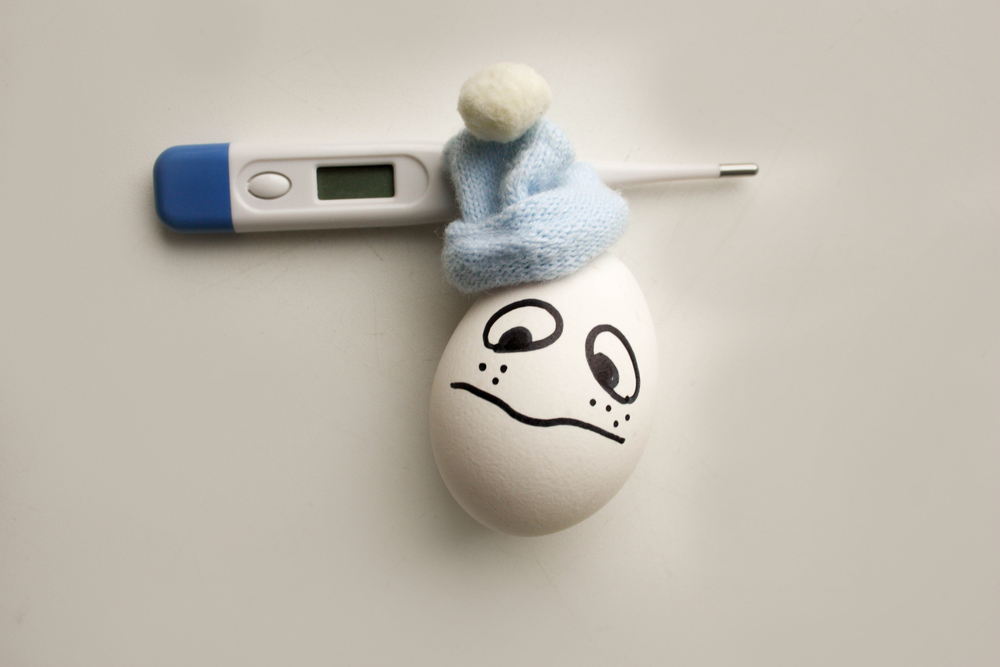Advances in technology have made it possible to do things which were previously considered impossible, from carrying around tiny computers in our pockets to celebrating birthdays via Zoom. However, our human anatomy has remained pretty much the same since it started to be studied. Most of us are aware that our bodies unavoidably decline with age. As women, that famous biological clock does tend to start ticking quite loudly after a certain age, especially if you are invested in having children. This brings me to the topic I’m eager to share today. Eggs! Yes, the proverbial seed of life that lies in wait to be fertilized, the same one that gets shed every month during the female period.
Egg Freezing
Interesting fact: Did you know that 20-week female fetus has the most eggs that she will ever have in her lifetime. As women, egg volume peaks inside the womb and starts to decline from birth. (Can you imagine?!) This decline increases when we hit puberty and start to have periods. Basically, every period is a sign that you now have less eggs than you did a month ago. Talk about pressure!
Apart from the eggs itself, the quality of the eggs also declines with age. It is said that, in your early 20s, 90% of your eggs are genetically normal. By your mid-40s, however, fewer than 20% of your eggs retain the same quality. This reduced quality of eggs may mean that they are less likely to get fertilized and result in a pregnancy, or even when a pregnancy results, there are higher chances of miscarriage. Medically, the best years for egg quality are between the ages of 16-30 years. After the age of 35-37, the quality of eggs takes a sharp decline.
Fortunately, this age-related decline is egg dependent and not uterus dependent. Physically, “older” women are still able to safely carry a pregnancy to term, as long as they have no other medical conditions that might prevent them from doing so. This is good news for women who wish to delay childbearing because they can take advantage of assisted reproductive treatments/options.
One of the options of assisted reproduction catching the buzz lately is egg freezing. This process involves harvesting eggs from your ovaries and storing them in a frozen state for later use. This is a very specialized science, run by specialists such as embryologists to fertility specialist doctors and nurses. Egg freezing has multiple steps — ovarian stimulation, egg retrieval and then, freezing.
Things To Consider
Two important factors to consider before making the decision to freeze your eggs are
- planned age of childbearing
- ovarian reserve markers/age at time of egg retrieval
Women between the ages of 30-37 years are considered ideal candidates for egg freezing because they are more likely to have good quality eggs and more likely to use the frozen eggs one day. Women under 30 are generally not encouraged to consider egg freezing because their eggs are not considered mature enough to produce best results after undergoing the freezing process. Another reason is that the process of egg preservation is a major commitment, financially, emotionally, and psychologically. It is not something to be embarked on lightly. Women who only intend to delay having children for a short period of time are not generally encouraged to go through with it.
As mentioned earlier, the quality and quantity of eggs are important factors, so the first step would be to check the ovarian reserve markers. This involves blood tests that will be done by a doctor to check the quality of the eggs. If the tests come back looking good, then the process of controlled ovarian stimulation can begin.
This usually involves the use of hormone medications to cause the ovaries to produce more eggs than usual. Now, to be honest, this is not a very pleasant process for many women. Having to inject yourself daily for up to two weeks, depending on the program designed by your fertility specialist.
Side effects
During this process, the drugs may cause over stimulation of the ovaries which leads to Ovarian Hypersensitivity Syndrome.
There will also be ultrasound scans done to check the effect of the hormones on the ovaries. If and when the ovaries are deemed to have sufficient eggs, the egg retrieval procedure can then be scheduled. This can be done using a trans vaginal scan to find the follicles and then use a special instrument to suck them out. More eggs mean better chances
The chances of achieving pregnancy after using frozen eggs is dependent on the age of the woman at the time of egg retrieval. So far, studies haven’t shown any increase in the risk of birth defects in babies born following the process of egg freezing.
Note that there is no guaranty of childbirth with egg freezing, just like the chances of becoming pregnant after implantation are roughly 30 to 60 percent, depending on your age at the time of egg freezing. Still, it’s worth considering if biological reproduction is important to you.
